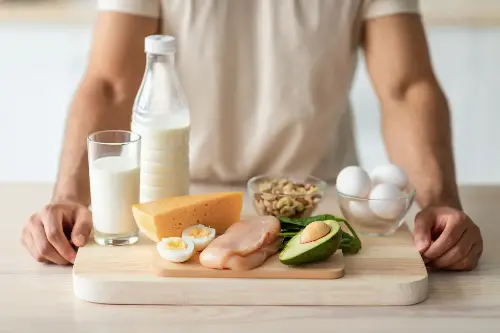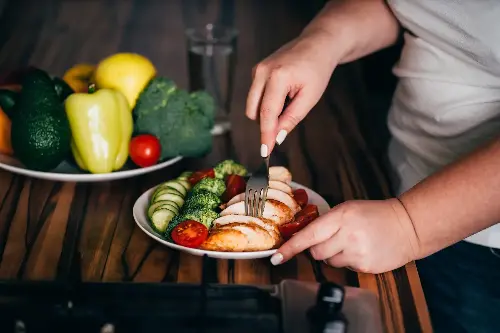If you walk through the aisles of any supermarket or scroll through health blogs, you’ll notice the same trend: protein is king. There are protein bars, shakes, breads, cookies, even waters. But amidst the craze, have you ever wondered whether stacking up the grams is always the smartest move? Before you swap your morning toast for another scoop of whey powder, it’s worth diving into what your body actually needs and whether more really is better.

Why do we need protein?
Protein is one of the three major macronutrients, alongside carbohydrates and fats. It plays a starring role in building and repairing tissues, producing enzymes and hormones, and forming the building blocks of skin, bones, muscles and blood. In other words, you couldn’t live without it.
The body is in a near-constant state of breaking down and rebuilding proteins. Amino acids, the smaller units making up proteins, are used to construct everything from muscle fibres to neurotransmitters. Unlike fats and carbohydrates, the body doesn’t have a large reservoir to store extra protein, so it’s important to consume it regularly.
Daily requirements – How much do you really need?
It turns out, your body doesn’t require endless piles of chicken breast to flourish. The recommended dietary allowance (RDA) for protein varies by age and activity but, for most healthy adults, it sits at about 0.8 grams per kilogram of body weight per day. That’s about 56 grams for an average man and 46 grams for an average woman.
Athletes and those who are very active need more, but even then, the numbers are far from outrageous—generally ranging from 1.2 to 2 grams per kilogram of body weight. For a 70 kg person, that’s between 84 and 140 grams a day, which is still manageable without turning every meal into a steak house experience.
It’s worth noting that healthy older adults may benefit from slightly higher protein intakes, as muscle mass naturally declines with age. This can help preserve strength and mobility.

More isn’t always better – The science explained
With the supplement industry in full swing, it’s easy to believe “more protein, more muscle” is a golden rule. However, scientific studies consistently show that once you hit your daily requirement, your body doesn’t get extra benefits from more protein. Excess protein isn’t stored to boost muscles; rather, it’s either used for energy or converted and stored as fat.
The most effective driver of muscle gain is resistance training, not mega doses of protein. As long as you’re eating enough protein to support repair and growth, more isn’t going to magically pack on extra lean tissue.
Surprisingly, overdoing protein can occasionally backfire. Too much can put strain on the kidneys over time and may displace other essential nutrients from your diet. A meal plan skewed towards high protein but low in whole grains, fruits or vegetables misses out on critical fibre, vitamins and minerals.
Quality versus quantity
It’s not just about how much protein you eat, but where it comes from. Animal sources—like eggs, dairy, fish, poultry and meat—are “complete” proteins, offering all nine essential amino acids your body can’t make on its own. Plant sources—beans, lentils, quinoa, nuts and seeds—are generally “incomplete”, but combining different types throughout the day easily covers your bases, even for vegans and vegetarians.
In fact, many health authorities encourage shifting some protein intake towards plant-based sources. These are typically lower in saturated fat and offer additional health perks such as fibre and antioxidants. Varied eating trumps monotonous chicken-and-rice routines.

Protein myths and the real benefits
Protein certainly deserves its reputation as a key nutrient, but marketing often stretches the facts. Contrary to popular belief, more protein won’t speed up weight loss magically. While it can help you feel full and preserve muscle during a calorie deficit, diet balance remains crucial for long-term health and sustainable weight management.
Another common myth is that only athletes or gym enthusiasts need to pay attention to protein. In reality, everyone needs protein for daily upkeep—especially children, pregnant women, and those recovering from illness or injury.
The bottom line: Find your personal balance
Protein is essential, but more isn’t always better. Most people can easily meet their needs through a balanced diet without resorting to supplements and shakes. Focus on incorporating diverse, high-quality protein sources and matching your intake to your activity level and stage of life.
Instead of aiming for sky-high numbers, listen to your body, and enjoy the broad palette of healthy foods available to you. And remember, while that protein bar might be tempting, sometimes a bowl of beans, a chunk of cheese or a handful of nuts is just what your body actually needs. Your muscles—and your taste buds—will thank you.
